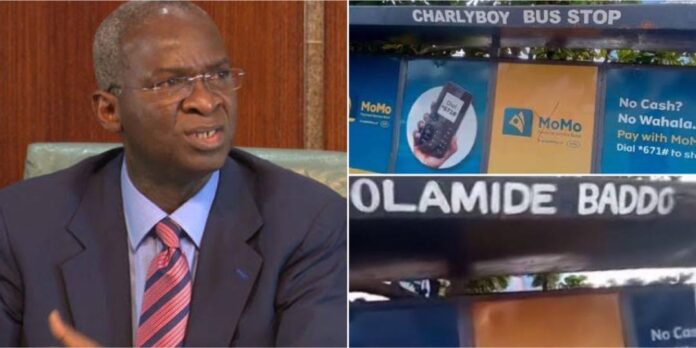Former Lagos State Governor, Babatunde Fashola, has stepped forward to express strong disapproval over the current trend of renaming streets in Lagos. He argues that such arbitrary changes are happening without proper respect for the enduring legacies of those originally commemorated.
Can you feel that concern for history? This isn’t just about street signs; it’s about safeguarding our collective memory and preventing the erosion of the very heritage that defines Lagos.
The Unveiling of a Warning: History at Stake
Fashola made his impassioned statement during the public unveiling of “Discover Lagos State: A History Puzzle Book (Volume 1).” The event, held at the Civic Centre in Victoria Island on Tuesday, served as the perfect platform for him to emphasize a critical point: safeguarding Lagos’s historical records is absolutely essential. Why? To protect societal values and prevent the dangerous distortion of the state’s rich heritage.
He drove home his point by referencing invaluable archival materials from the University of Glasgow, highlighting just how crucial proper documentation is in shaping public memory and national identity. Our past, he suggests, is not something to be casually rewritten.
Honoring Legacies: The Story of Dr. Isaac Ladipo Oluwole
To illustrate his concern, Fashola brought to life the story of Dr. Isaac Ladipo Oluwole. This remarkable individual studied at the University of Glasgow between 1913 and 1918 and later achieved a significant milestone, becoming Nigeria’s first African medical officer of health in the Lagos colony.
Fashola proudly recounted how Dr. Oluwole was a true pioneer, initiating school health services and founding Nigeria’s very first school of hygiene in Yaba in 1920. His contributions were so profound that a street in Ikeja — Ladipo Oluwole Street — was named in his honor, specifically to immortalize his lasting impact.
“But it is perhaps instructive that we are discussing street naming and street unnaming, and I keep my gunpowder dry,” Fashola remarked, hinting at the ongoing controversies surrounding such renamings. This suggests he’s well aware of recent debates (like the Charly Boy Bus Stop issue) and is choosing his words carefully, yet firmly. He underscored the vital importance of understanding the original reasons behind such namings, urging all Lagosians to grasp the profound legacies that these names represent.
Investing in Our Past: Supporting LASRAB
Beyond his critique, Fashola also issued a crucial call to action: he urged for increased funding and support for the Lagos State Records and Archives Bureau (LASRAB). This is the very agency that developed the innovative puzzle book, and Fashola praised LASRAB for going above and beyond. He highlighted its role not just as a creator of educational resources, but as a vital repository for the state’s historical records. Investing in LASRAB, he implies, is investing in our collective self-knowledge.
Representing Governor Babajide Sanwo-Olu at the event, Deputy Governor Obafemi Hamzat echoed Fashola’s sentiments, applauding the puzzle book as an innovative educational tool designed to nurture historical consciousness among young people. Hamzat also commended Fashola’s foresight in setting up LASRAB, recalling how his administration instituted measures to ensure critical state documents were meticulously archived across various ministries.
“This foundational act was not merely administrative. It was an intentional effort to institutionalize, preserve, document, and disseminate Lagos’s narrative for posterity,” Hamzat stated. He powerfully concluded, “It is important that we don’t only understand ourselves, but we must understand our history so we don’t lose ourselves. This book is a creative method of crafting historical consciousness that informs while it also entertains. That way, we don’t distort our history and we don’t misunderstand our being.”
This unified message from past and present leaders underscores the critical importance of preserving history. It’s a call for reflection, urging Lagosians to cherish the names and stories that have shaped their vibrant state, ensuring that the past informs a clear and proud future.


